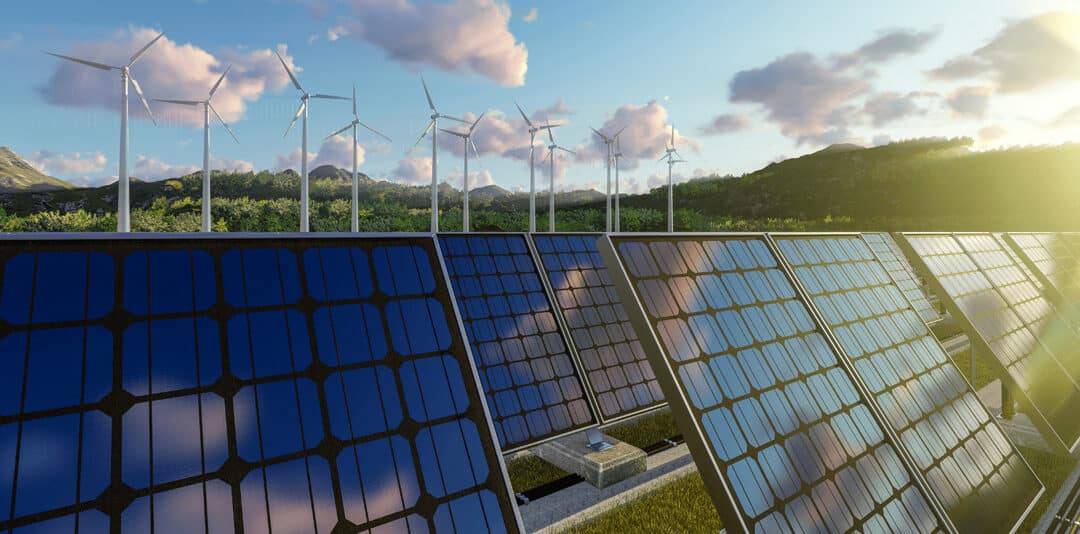
by Chris Hargreaves | Sep 12, 2023 | News, Sustainable Business
In the words of influential French politician and lawyer, Christine Lagarde, who currently holds the position of President of the European Central Bank, it’s high time for businesses to shift their perspective and view sustainability as an investment not a cost:
“Businesses must see sustainability as an investment, not a cost. By adapting and reducing emissions, they can secure long-term success while safeguarding the planet.”
In this era of environmental consciousness and corporate responsibility, let’s delve into 15 key reasons why addressing your carbon footprint isn’t just a good idea – it’s a strategic move that can yield massive benefits:
- Cost Savings: By implementing carbon reduction measures, you can significantly reduce energy consumption, leading to lower energy bills and operational costs.
- Enhanced Reputation: Demonstrating a steadfast commitment to sustainability and environmental responsibility can elevate your brand’s image, attracting eco-conscious customers.
- Competitive Advantage: Businesses with smaller carbon footprints can effortlessly stand out in the market, resonating with eco-conscious consumers and distinguishing themselves from competitors.
- Regulatory Compliance: Meeting carbon reduction targets ensures compliance with environmental regulations, effectively sidestepping potential fines and legal troubles.
- Risk Mitigation: Reducing reliance on carbon-intensive resources and practices shields your business from the volatility of energy prices and supply chain disruptions.
- Employee Engagement: Engaging in sustainability efforts fosters higher employee morale and satisfaction by aligning with their values and creating a positive workplace culture.
- Innovation and Efficiency: The pursuit of carbon emissions reduction often drives innovation, resulting in streamlined processes and enhanced overall efficiency.
- Resource Optimisation: Carbon reduction initiatives often involve optimising resource use, which can reduce waste, boost operational efficiency, and trim costs.
- Investor Appeal: Investors increasingly favour environmentally responsible companies, making businesses with robust carbon reduction strategies more appealing for investment.
- Long-term Resilience: Proactive measures to combat climate change enhance your business’s long-term resilience, allowing it to adapt to shifting regulatory and market landscapes.
- Supply Chain Benefits: Implementing carbon reduction initiatives within your organisation can inspire suppliers to adopt similar practices, thereby promoting sustainability throughout the supply chain.
- Stakeholder Trust: Transparent efforts to reduce carbon emissions foster trust among stakeholders, including customers, employees, investors, and local communities.
- Customer Loyalty: Customers are more inclined to support businesses that demonstrate a commitment to reducing their carbon footprint, leading to increased customer loyalty.
- Economic Growth: Investing in clean energy and sustainable practices can contribute to the growth of renewable energy industries, creating job opportunities and economic growth.
- Future Proofing: Taking proactive steps to reduce carbon emissions helps businesses safeguard against evolving regulations and changing customer preferences.
Tailored sustainability solutions for your business
By recognising sustainability as an investment, you not only contribute to a greener planet, but also unlock substantial financial, strategic, and reputational rewards.
At Total Utilities, we’re committed to helping you optimise your business and achieve your sustainability goals. Our sustainable energy services are tailored to your unique needs and grounded in a deep understanding of your business’s nuances.
Our mission is to provide practical sustainability planning that not only makes environmental sense, but also solid financial sense, ensuring your business remains resilient and successful in the future.
Groundbreaking carbon management service coming soon!
And in just a matter of weeks, we’re excited to unveil a groundbreaking carbon management service that has the potential to supercharge your carbon reduction efforts tenfold. Stay tuned for updates or reach out to us for more information.

by Chris Hargreaves | Aug 15, 2023 | News, Sustainable Business
In the battle against climate change, many businesses are proving that even the tiniest actions can yield colossal results when multiplied by collective action.
From small startups to corporate giants, an array of industries are embracing an arsenal of unassuming tactics which, when combined, pack a serious carbon-reducing punch.
As renowned American historian and social activist Howard Zinn put it:
“We don’t have to engage in grand, heroic actions to participate in change. Small acts, when multiplied by millions of people, can transform the world.”
Reducing your business’ carbon footprint means taking control of your environmental impact and responsibilities, whilst also discovering hidden inefficiences and cost saving gains you never knew existed.
At Total Utilities, we’re here to support your carbon reduction and energy efficiency efforts, regardless of scale.
So, let’s take a quick glimpse into the world of small changes that can create monumental impact:
Energy efficiency: implementing energy-saving practices like using LED lighting, upgrading to energy efficient appliances, and optimising heating and cooling systems can often lead to immediate energy savings and reduced carbon emissions. Total Utilities has particular expertise in this area and can gather comprehensive insights into where you use energy. We can then analyse data to identify savings opportunities that reduce environmental impact.
Waste reduction and recycling: Establishing comprehensive waste management strategies that include recycling, composting, and minimising waste generation will divert waste from landfills and incineration. Businesses can significantly decrease their carbon footprint by making relatively small changes.
Supply chain optimisation: Collaborating with suppliers who prioritise sustainability, source locally where possible, and streamlining transportation routes helps create a green supply chain that can contribute to carbon reduction across the business ecosystem.
Telecommuting and flexible work: Encouraging remote work and flexible scheduling options for employees reduces the need for daily commutes. This not only cuts down on carbon emissions, but also boosts employee morale and productivity.
Employee awareness and engagement: Educating employees on carbon reduction best practices, such as turning lights off and equipment when not in use, minimising paper usage, recycling, and using reusable containers. Employee involvement fosters a culture of sustainability and collective action.
Total Utilities can advise on all of these carbon saving actions and much more! By focusing on small changes such as these, businesses can achieve substantial progress in carbon footprint reduction without a major upheaval in operations. Additionally, these changes can yield long-term cost savings for your business.
In the arena of carbon reduction, it’s often the little things that make the biggest impact. Substantial carbon reduction doesn’t hinge solely on grand gestures, but relies on the resolve of every business to play its part in emissions reduction and efficiency improvement – all the while reaping the rewards of lowered energy costs.
So, why not get with the programme today and prepare for a new era of carbon reduction success with Total Utilities!
– Stay tuned for a game changing Total Utilities carbon management service, designed to effortlessly measure, reduce and disclose your carbon emissions.
– Contact us today to talk about measuring and reducing your business carbon footprint.
by Chris Hargreaves | Oct 7, 2022 | Carbon Neutral, Energy, Sustainable Business
With prevailing energy market conditions causing sharp price hikes that show no signs of abating – what can you do and who do you turn to for advice and viable solutions?
Since the beginning of 2021, negotiated contract pricing for large commercial customers has increased from 11c/kWh to 18c/kWh for a three year period. This means a customer using one million kWh per year is paying $70,000 more for electricity per year than 19 months ago.
Mass market customers have not been impacted to the same degree with pricing moving from 9c/kWh to 12.5c/kWh.

Rather than bore you with the (too numerous) details and interrelated factors that have caused this unwelcome turn of events, let’s explore the options open to businesses to mitigate sky high energy costs.
Time to turn to the experts?
Many businesses are turning to energy management consultancies to help them navigate the challenging energy markets and provide services to assist them to get the very best deal on their utilities.
They are also hiring consultants to explore sustainable and renewable energy options to help them diversify their energy portfolio and give them maximum bang for their buck in terms of energy efficiency, pricing and carbon liabilities.
But according to Total Utilities Director Chris Hargreaves, it’s a case of ‘buyer beware,’ when it comes to hiring an energy management consultancy. He says the quality of service and outcomes vary dramatically.
“If it was my business, there are only a small handful of organisations I would consider using in New Zealand to obtain energy contracts on my behalf and to have the ability and insight required to properly explore efficiency and sustainable solutions.
“The consultancy industry for energy is not regulated, so effectively anyone can start up a business that offers procurement services,” he says.
Chris advises considering various factors before hiring a consultant, including how many procurements they conduct each year. The energy market is highly dynamic and energy retailers are entering and leaving the market at unprecedented rates and pricing models and practices are changing daily.
If the consultant or advisor you are using is not pricing in the market on a regular basis, then you are likely to get caught out by the market changes. Look for companies conducting over 100 procurement exercises per year (as an example, we average almost 350).
You should also establish whether your consultant reviews the entire market of energy retailers for pricing (we do), or just their favoured few companies (nope, not us).
Also, does your advisor or consultant gather detailed market intelligence to track wholesale pricing and industry developments? Do they warn you of potential ‘gotcha’ clauses to look out for in energy contracts as part of their procurement process? Needless to say, Total Utilities ticks all these boxes.
Aside from engaging a reputable energy management consultancy to help you traverse choppy utility waters, Chris explains there are various ways to hedge against rising costs, to minimise budgetary risk and ensure you comply with regulatory requirements.
Cost saving starts with sustainability & efficiency
He says that first and foremost, now is the time to explore efficiency, sustainability, and low carbon solutions to increase resiliency.
“By exploring sustainable solutions such as LEDs, Renewable Energy Certificates, solar and energy conservation methods, you can achieve short term wins and relief from volatile energy prices, whilst also unlocking long term sustainability benefits and future proofing your business.
“Sustainability not only saves money by creating energy efficiencies, it also decreases your reliance on the grid, so you are no longer at the mercy of volatile energy prices,” he adds.
Keeping the lights on
One of the trends we’re seeing in the industry is a move away from centralised, utility based generation – to so called ‘distributed generation.’ This is a shift from a single source to many sources to allow for increased resiliency and reduced reliance on the grid.
For example, traditionally if the grid goes down, you have no real option to keep your business going. But if you have solar with battery storage, you might be able to keep the lights on until the grid comes back online.
Additionally, you avoid the full impact of market volatility if your energy sources are distributed – it goes back to the wisdom of the old proverb, ‘don’t put all your eggs in one basket.’
Talk to us
A great place to start when it comes to navigating the ever-changing energy markets is to talk to our team at Total Utilities. Our data-driven approach, born out of comprehensive investigations and analysis, allows us to carefully tailor energy services and solutions to your business.
With our proven 20 plus years in the energy business, we negotiate over $400 million worth of energy contracts for our clients every year. We can leverage relationships to get you better prices.
Our detailed pricing analysis and tendering services help save time and money by pinpointing the best possible energy contracts and ensuring the most favourable terms and prices.
We put sustainability, cost saving and energy efficiency at the heart of our clients’ businesses, so that they can be both sustainable and highly profitable.
And in this environment, setting sustainability and carbon reduction targets isn’t just about reducing your environmental impact – it simply makes good business sense.
Contact us to find out more about our energy management consultancy services.
Sign up below for Total Utilities Market Commentary to receive all the latest market news and insights.

by Jonathan Gardiner | Aug 19, 2022 | New Zealand Energy Certificates, NZ-ECs, Sustainable Business
Total Utilities Management Group is excited to announce our registration on the ‘New Zealand Energy Certificate System (NZECS)’ – enabling our clients to support renewable generation and reduce their reportable emissions.
Administered and developed by BraveTrace, NZECS allows energy consumers to offset their reportable electricity related greenhouse gas emissions and support renewable energy by buying New Zealand Energy Certificates (NZ-ECs) to redeem against their consumption.
What are New Zealand Energy Certificates (NZ-ECs)? NZ-ECs show how and when energy was generated, and from where. This information is referred to as a ‘generation attribute.’ NZ-ECs can be traded and transferred from electricity generators to electricity retailers, who can ultimately sell these certificates to energy consumers. Through the purchase of a certificate, a consumer ‘reserves’ that unit of generation as their own – enabling them to make a clear statement about the type of electricity that they support.
This means that Total Utilities can now act as an independent broker of NZ-ECs and can buy and trade certificates on behalf of our customers to support them to invest in 100% renewable energy.
Certificates can be used to report zero-carbon electricity usage in accredited Greenhouse Gas Reporting Programmes and are a competitively priced alternative to carbon offsets that also offer the potential for greater impact.
By using Total Utilities as your independent broker for NZ-ECs, you can also be assured of straightforward, flexible contract terms – regardless of whether your energy use is big or small.
Fully Transparent Reporting
New Zealand is a relatively late adopter of a system of tradable energy certificates. Certificates create supply chain transparency with the attributes of each certificate outlining energy generation source, age of the generator and whether or not the generator is certified net zero carbon.
Electricity purchased directly from the grid in New Zealand comes from sources which are on average 80% renewable, however, depending on where and when it is purchased, the actual makeup of energy being delivered can vary sharply. This means that up until now, consumers of electricity had no way to link their consumption directly with a renewable generator.
BraveTrace’s NZ Energy Certificate System changes all this…
NZ-ECs prove that purchased energy is directly tied to a 100% renewable energy generator. They also allow energy consumers to report zero related greenhouse gas emissions and thus, to invest in a sustainable future for New Zealand.
NZ-ECs not only provide a fully transparent method of reporting, but also incentivise generators of renewable energy, who can sell their energy certificates on the open market. Total Utilities currently manages around half a billion dollars per year of utility contracts on behalf of our clients and sustainability has become a major strategic objective for many of these businesses.
We are fully committed to assisting our clients move towards 100% renewable energy, helping them in their journey towards net zero emissions.
Total Utilities Managing Director, Jonathan Gardiner, reacts to our registration on NZECS…
“We thrive on energy competition, and our registration as a participant in the New Zealand certificate market allows our customers to get the best of both worlds – full energy market competition, and quick sustainability wins with New Zealand Energy Certificates.
“By choosing to only offer NZ-ECs from suppliers which meet the strict Toitū Envirocare compliance criteria, our clients can report zero-carbon electricity usage in accredited GHG programmes, be part of New Zealand’s renewable energy future and meet carbon reduction targets.
“Electricity is a major cost and driver of emissions for many of our clients, so providing an independent service to negotiate energy supply contracts along with NZ-ECs means our clients can choose to take energy supply from any retailer whilst also meeting their sustainability goals.
“The certificates help create a circular economy as sellers of certificates are required to invest the revenue they earn from certificates in new renewable generation or decarbonisation projects. Purchasers of certificates are investing in a sustainable future for New Zealand.”
“By being amongst the first NZ-based participants to register on Certified Energy’s NZ Energy Certificate System, Total Utilities underlines our commitment to providing customers with the most powerful tools in their journey towards adopting renewable energy sources and moving towards net zero emissions.”
Sign up below for Total Utilities Market Commentary to receive all the latest market news and insights.

by Chris Hargreaves | Jun 22, 2022 | Carbon Neutral, COP26, Sustainable Business
The release of New Zealand’s first Emissions Reduction Plan sets new urgency around our country’s transition to a carbon-zero future and means slashing 11.5 million tonnes of carbon equivalent off our emissions by 2025.
The plan reveals how the Government will meet New Zealand’s first emissions budget of 72.4 million tonnes a year and underlines the fact that there is no more time for business as usual when it comes to decarbonisation. And if greenhouse emissions and tonnes of carbon don’t mean a lot to you, picture this; 1 tonne of CO2 would fill 1 large hot air balloon (almost 3,000 cubic metres in volume), and to capture 1 tonne of CO2 emissions, approximately 50 trees must grow for one year. The challenge is real.
Strategic urgency for decarbonisation
During the last 12 months, the conversation has shifted from decarbonisation being a tactical compliance thing for businesses – to having real strategic urgency.
As Total Utilities Director, Chris Hargreaves explains, “Addressing carbon is becoming a business problem and not an optional extra.” “Creating a low carbon economy requires considerable planning,” says Chris. “Businesses will need to be adaptable and flexible to meet the Government’s emission budgets and reduction plan and they will need to have a plan to mitigate risks associated with it. “Carbon units will become more expensive over time, increasing the cost of goods and services with high carbon intensity.”
Protect your brand & reputation
The benefits for businesses that address carbon now are huge. Think of the cost savings of needing less energy to run your business and reducing your energy requirements now to mitigate future cost increases. Decarbonisation also means protecting your brand and reputation as more customers turn to sustainable companies.
Furthermore, it gives you a head start in bidding for contracts, with many businesses now asking for details on approaches to sustainability and emission reduction before awarding contracts. And front of centre of it all, of course, is the environmental imperative to reduce emissions. Science tells us we need net zero emissions to limit temperature rises to 1.5°C, and the race to get there by 2050 has started. So why aren’t businesses moving faster? Chris says that clients who come to him for advice know they need to do something but often don’t know what to do or where to start.
Total Utilities can help…
This is where Total Utilities comes in. Having worked in New Zealand’s energy market for well over 20 years, we specialise in assisting companies with the decarbonisation process and putting together carbon reduction plans. “We can help you baseline greenhouse gas emissions from across all your operations, so you know where to start,” says Chris. “We then use science-based methodologies to come up with your pathway towards net zero, ensuring a stakeholder lead approach. We can reduce your business risk by adhering to today’s environmental regulations and preparing you for any future legislation.”
Funding challenges are also often a significant roadblock to businesses taking action, explains Chris, but the benefits of future proofing your business and the cost savings over time help offset this. “Furthermore, we can identify cost savings and revenue opportunities that will have a positive effect on your productivity, profits and performance,” he adds.
Sign up below for Total Utilities Market Commentary to receive all the latest market news and insights.

by Chris Hargreaves | May 26, 2022 | Carbon Neutral, Solar plan, solar power, Sustainable Business
It’s cheap, it’s reliable and it’s not running out anytime soon. So the burning question remains – why isn’t commercial solar as hot as… well, the sun?
Today, the business case for solar is becoming more and more compelling when it comes to commercial use. It’s not only good for the environment – it’s also good for your bottom line.
With electricity prices going through the roof, solar represents a cheap alternative to cut ongoing power costs and hedge against future electricity price increases.
Indeed, solar gets more viable by the day when you consider the gains you receive in terms of ensuring budget stability with predictable, self-generated solar costs. Then there’s the add-on benefit of being able to more accurately forecast operating power expenses.
So, what’s holding businesses back?
Total Utilities Director, Chris Hargreaves, believes it could be down to the perception that the return on investment is too long.
But Chris explains Total Utilities can provide various funding options which make the transition cost neutral, so it doesn’t have to add to overall business debt. And over time of course, you have the ongoing benefit of cheap and sustainable solar.
More viable and better value for money
“Return on investment is now under seven years for a commercial solar array, so it’s becoming much more viable and better value for money for business use,” he says. “Even in the last 12 months, conditions have changed with electricity prices going up and the cost of solar coming down.”
“Reducing your reliance on the grid and generating your own electricity onsite, gives you a strategic advantage and means you can become master of your own destiny, mitigating against energy price volatility.”
Smart with solar
Chris explains that solar users can also get smart with how they use their self-generated power. For example, they can discharge their solar battery at peak times to avoid peak grid rates, as well as generate revenue by selling excess solar energy back to the grid.
Other major benefits include solar being an easily maintainable, consistent power source – providing uninterrupted supply during power cuts. It’s conveniently scalable too, so you can further reduce up front costs by growing your system with your business over time.
Goodwill of going green
And you can’t underestimate the goodwill generated by being perceived as a ‘green’ business as more and more customers turn to companies putting sustainability at the heart of their operations.
Indeed, when it comes to bidding for contracts, sustainability is becoming central to doing business in many sectors, with clients giving considerable weight to sustainability credentials when it comes to awarding contracts.
So, it seems the jury is no longer out when it comes to solar. It’s time to bask in its uninterrupted glory.
With the list of benefits including cost saving, controlling utility costs, reducing your carbon footprint, providing uninterrupted power and being easily maintained and scalable – all at the same time as showcasing your eco-friendly creds – only one question remains…
When are you going to join the new power generation?
Download this guide for the benefits and how we can have solar plan for you!
Total Utilities-Powering your business with solar
- Find out more about your solar options by contacting us at Total Utilities.
Sign up below for Total Utilities Market Commentary to receive all the latest market news and insights.






